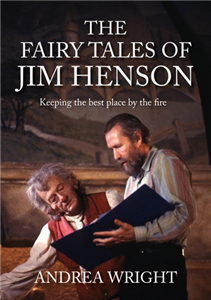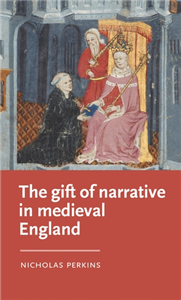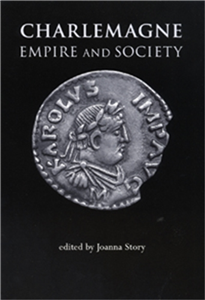Your Search Results
-
 Trusted Partner
Trusted Partner
Tales of EUkraine
Tales of EUkraine (TEUk) will bring books to Ukrainian children refugees while helping the Ukrainian publishing sector with the support of the European Commission
View Rights Portal
-
Promoted Content
-
Promoted ContentThe ArtsJuly 2025
The Fairy Tales of Jim Henson
Keeping the best place by the fire
by Andrea Wright
The Fairy Tales of Jim Henson: The best place by the fire is the first book to specifically consider Henson, best known for the immensely popular The Muppet Show, as an important creator of screen fairy tales. In a chronological overview of Henson's career from the late 1950s to his death in 1990, it explores key themes, artistic practices and innovations that make his contribution to the genre unique. Drawing upon a range of fairy tale scholarship, it also situates Henson's work within the wider context of the genre, specifically its conventions, themes and inherent intertextuality.
-
 Trusted Partner
February 2022
Trusted Partner
February 2022On Narrative
Poetry of Everyday
by Hermann Bausinger
Narrative art Narrating is an art that is gifted to everyone. Narrative, for Hermann Bausinger, begins from the moment we wait together for the bus. When we complain of it being late again and the stories that emerge about travel by bus. The well-known cultural academic is also luckily a gifted narrator. His book is an extremely vivid and descriptive account of the multiple varieties of narrative. He takes us into the rich world of storytelling of fairy tales and fables, invoking the wit of language, focusing on narrative theory and the special significance of narrative in the online age. Full of variety and wonderful examples, Bausinger lets the narrative, and the stories shine. Because for him storytelling, our relationship with language, is what defines us as human beings.
-
 Trusted Partner
Literature & Literary StudiesApril 2020
Trusted Partner
Literature & Literary StudiesApril 2020Interweaving myths in Shakespeare and his contemporaries
by Janice Valls-Russell, Agnès Lafont, Charlotte Coffin
This volume proposes new insights into the uses of classical mythology by Shakespeare and his contemporaries, focusing on interweaving processes in early modern appropriations of myth. Its 11 essays show how early modern writing intertwines diverse myths and plays with variant versions of individual myths that derive from multiple classical sources, as well as medieval, Tudor and early modern retellings and translations. Works discussed include poems and plays by William Shakespeare, Christopher Marlowe and others. Essays concentrate on specific plays including The Merchant of Venice and Dido Queen of Carthage, tracing interactions between myths, chronicles, the Bible and contemporary genres. Mythological figures are considered to demonstrate how the weaving together of sources deconstructs gendered representations. New meanings emerge from these readings, which open up methodological perspectives on multi-textuality, artistic appropriation and cultural hybridity.
-
 Trusted Partner
Trusted Partner
-
 Trusted Partner
Literature & Literary StudiesJanuary 2023
Trusted Partner
Literature & Literary StudiesJanuary 2023The gift of narrative in medieval England
by Nicholas Perkins
This invigorating study places medieval romance narrative in dialogue with theories and practices of gift and exchange, opening new approaches to questions of storytelling, agency, gender and materiality in some of the most engaging literature from the Middle Ages. It argues that the dynamics of the gift are powerfully at work in romances: through exchanges of objects and people; repeated patterns of love, loyalty and revenge; promises made or broken; and the complex effects that time works on such objects, exchanges and promises. Ranging from the twelfth century to the fifteenth, and including close discussions of poetry by Chaucer, the Gawain-Poet and romances in the Auchinleck Manuscript, this book will prompt new ideas and debate amongst students and scholars of medieval literature, as well as anyone curious about the pleasures that romance narratives bring.
-
 Trusted Partner
Biography & True StoriesJune 2010
Trusted Partner
Biography & True StoriesJune 2010Alison Uttley: Spinner of Tales
The authorised biography of the creator of Little Grey Rabbit
by Denis Judd
Little Grey Rabbit and Sam Pig are just two of the inspired characters created by Alison Uttley, loved by millions and still very popular today. But who was the real woman spinning enchanting tales of country life and lore, magic and friendship? Alison Uttley gathered much of the inspiration for her stories from the fond memories of her Derbyshire childhood and her love of the countryside. A talented and prolific writer, she was still producing stories in her late eighties. Yet she was often plagued by self-doubt, and extremely possessive over her close friends, family and work. Tragically, Alison's husband committed suicide before her writing successes. She soon developed a smothering relationship with her only child John, even convincing him to jilt his first fiancée and escape to Scotland - the honeymoon destination. With exclusive and unrestricted access to her personal diaries and private letters, Denis Judd paints an intriguing portrait of one of the most successful, creative and troubled children's authors of modern times. ;
-
 Trusted Partner
Literature & Literary StudiesOctober 2012
Trusted Partner
Literature & Literary StudiesOctober 2012Narration in nineteenth-century French short fiction
Prosper Mérimée to Marcel Schwob
by Peter Cogman
The short fiction that flourished in nineteenth-century France has attracted relatively little critical attention compared with the novel. This study focuses on some key stories by major authors of contes and nouvelles from the late 1820s to the 1890s, taking as a starting-point, aspects of narrative technique as a way of exploring not just characteristic strategies of short fiction, but also the ends to which they were put: recurrent themes, and the vision of mankind. Each chapter looks in some detail at three or four stories, referring briefly to other tales for illustration. The underlying point that emerges from this study is that the interest of a tale lies in the telling, not the events. ;
-
 Trusted Partner
Trusted Partner
-
 Trusted Partner
Trusted Partner
-
 Trusted Partner
January 1994
Trusted Partner
January 1994Worldwatch Institute Report
Daten für das Überleben unseres Planeten / Zur Lage der Welt 1994
by Herausgegeben von Worldwatch Institute, in Zus.-Arb. mit d. Deutschen Welthungerhife
-
 Trusted Partner
Humanities & Social SciencesApril 2023
Trusted Partner
Humanities & Social SciencesApril 2023An archaeology of innovation
Approaching social and technological change in human society
by Catherine J. Frieman
An archaeology of innovation is the first monograph-length investigation of innovation and the innovation process from an archaeological perspective. It interrogates the idea of innovation that permeates our popular media and our political and scientific discourse, setting this against the long-term perspective that only archaeology can offer. Case studies span the entire breadth of human history, from our earliest hominin ancestors to the contemporary world. The book argues that the present narrow focus on pushing the adoption of technical innovations ignores the complex interplay of social, technological and environmental systems that underlies truly innovative societies; the inherent connections between new technologies, technologists and social structure that give them meaning and make them valuable; and the significance and value of conservative social practices that lead to the frequent rejection of innovations.
-
 Trusted Partner
Literature & Literary StudiesJuly 2010
Trusted Partner
Literature & Literary StudiesJuly 2010The Winter's Tale
by Judith Dunbar, Jim Bulman, Carol Chillington Rutter
This illuminating study of The Winter's Tale in performance in the twentieth and early twenty-first centuries contributes to understanding the growth during that time of high critical esteem forwhat is now one of Shakespeare's frequently performed plays. Writing about performance as a richly collaborative living art, the author learns from and gives voice to the work of actors, directors, designers and other theatre professionals whose labor and interpretive discoveries have made it possible for audiences to experience the play's multiple potentialities in the theatre. She does this in part by citing from her interviews with directors like Trevor Nunn and Peter Hall and with actors engaged in some of the most significant twentieth-century productions of The Winter's Tale. Dunbar connects her scholarly research, including fresh use of materials in theatrical archives, to her direct experience of those productions she has able to see in performance and, at times, to see develop in rehearsal. Her in-depth analysis of selected significant twentieth-century productions, including cross-cultural productions of The Winter's Tale by the Royal Dramatic Theatre of Sweden (directed by Ingmar Bergman), and the Maly Drama Theatre of Europe, in St. Petersburg (directed by Declan Donnellan), explores how theatre artists have approached the play's most crucial theatrical and interpretive challenges. The book's last chapter, by distinguishedtheatre scholar and performance critic Carol Chillington Rutter, contributes a richly layered and highly engaging comparative analysis of eight of the most important recent British productions of the play. Dunbar makes a significant contribution to understanding The Winter's Tale which will be of great interest to scholars, teachers, and students of Shakespeare, to theatre lovers, and to all involved in productions of the play. ;
-
 Trusted Partner
Humanities & Social SciencesMarch 2005
Trusted Partner
Humanities & Social SciencesMarch 2005Charlemagne
Empire and society
by Edited by Joanna Story
The age of Charlemagne was a crucible for change in the history of Europe, bridging the divide between the medieval and the classical worlds and setting the political and cultural tone for centuries to come. This book focuses directly on the reign of Charlemagne, bringing together a wide range of approaches and sources from the diverse voices of fifteen of the top scholars of early medieval Europe. The contributors have taken a number of original aproaches to the subject, from the fields of archaeology and numismatics to thoroughly-researched essays on key historical texts. The essays are embedded in the scholarship of recent decades but also offer insights into new areas and new approaches for research. A full bibliography of works in English as well as key reading in European languages is provided, making the volume essential reading for experienced scholars as well as students new to the history of the early middle ages. ;
-
 Trusted Partner
October 2023
Trusted Partner
October 2023From India to Germany:What My Father's Journey Tells Usabout Migration and the Kindness ofStrangers
by Sunita Sukhana
— An extraordinary story of migration — Contemporary history of the 70s and backgrounds to India, Afghanistan, Iran, Turkey, Bulgaria, the former Yugoslavia, the GDR and the Federal Republic of Germany He was the son of the Sikh priest, a successful 400-meter runner and, eventually, a migrant. In 1979, Bagicha Singh turned his back on his homeland and set off with a head full of dreams on the long, turbulent overland journey from India to Germany. It was the year the Soviet Union invaded Afghanistan and the Islamic Revolution raged in Iran. A year whose aftermath continues to shape the world to this day. More than 40 years later, his daughter tells the story of Bagicha's adventurous journey. The result is a touching document on origin, contemporary history, and the meaning of migration.
-
 Trusted Partner
Trusted Partner
-
 Trusted Partner
The ArtsJune 2017
Trusted Partner
The ArtsJune 2017Terry Gilliam
by Peter Marks
Terry Gilliam presents a sustained examination of one of cinema's most challenging and lauded auteurs, proposing fresh ways of seeing Gilliam that go beyond reductive readings of him as a gifted but manic fantasist. Analysing Gilliam's work over nearly four decades, from the brilliant anarchy of his Monty Python animations through the nightmarish masterpiece Brazil to the provocative Gothic horror of Tideland, it critically examines the variety and richness of Gilliam's sometimes troubled but always provocative output. The book situates Gilliam within the competing cultural contexts of the British, European and American film industries, examining his regular struggles against aesthetic and commercial pressures. He emerges as a passionate, immensely creative director, whose work encompasses a dizzying array of material: anarchic satire, childhood and adult fantasy, dystopia, romantic comedy, surrealism, road movie, fairy tale and the Gothic. The book charts how Gilliam interweaves these genres and forms to create magical interfaces between reality and the illuminating, frightening but liberating worlds of the imagination. Scrutinising the neglected importance of literature and adaptation in Gilliam's career, this study also observes him through the lenses of auteurism, genre, performance, design and national culture, explaining how someone born in Minnesota and raised in California came to be one of British television and film's most compelling figures.
-
 Trusted Partner
Humanities & Social SciencesMarch 2017
Trusted Partner
Humanities & Social SciencesMarch 2017The language of empire
Myths and metaphors of popular imperialism, 1880-1918
by Robert Macdonald
The debate about the Empire dealt in idealism and morality, and both sides employed the language of feeling, and frequently argued their case in dramatic terms. This book opposes two sides of the Empire, first, as it was presented to the public in Britain, and second, as it was experienced or imagined by its subjects abroad. British imperialism was nurtured by such upper middle-class institutions as the public schools, the wardrooms and officers' messes, and the conservative press. The attitudes of 1916 can best be recovered through a reconstruction of a poetics of popular imperialism. The case-study of Rhodesia demonstrates the almost instant application of myth and sign to a contemporary imperial crisis. Rudyard Kipling was acknowledged throughout the English-speaking world not only as a wonderful teller of stories but as the 'singer of Greater Britain', or, as 'the Laureate of Empire'. In the last two decades of the nineteenth century, the Empire gained a beachhead in the classroom, particularly in the coupling of geography and history. The Island Story underlined that stories of heroic soldiers and 'fights for the flag' were easier for teachers to present to children than lessons in morality, or abstractions about liberty and responsible government. The Education Act of 1870 had created a need for standard readers in schools; readers designed to teach boys and girls to be useful citizens. The Indian Mutiny was the supreme test of the imperial conscience, a measure of the morality of the 'master-nation'.
-
 Trusted Partner
Clinical psychology
Trusted Partner
Clinical psychologyNarrative Exposure Therapy
A Short-Term Treatment for Traumatic - Stress Disorders
by Maggie Schauer, Frank Neuner, Thomas Elbert
The Narrative Exposure Therapy manual is an effective, short-term, culturally universal intervention for trauma victims - including the latest insights and new treatments for dissociation and social pain. Narrative Exposure Therapy (NET) is a successful and culturally universal intervention for the treatment of survivors of multiple and severe traumatic events, such as organized violence, torture, war, rape, and childhood abuse. Field tests in contexts of ongoing adversity and disaster areas, as well as controlled trials in various countries, have shown that three to six sessions can be sufficient to provide considerable relief. The first part of the book describes the theoretical background. The second part shows how to use the NET approach step by step, with practical advice and tools, including how to deal with special issues (such as dealing with challenging moments, defense mechanisms for the therapist, and ethical issues). Appendices include an informed consent form, and checklists for the therapist. Target Group: Trauma therapists, clinical psychologists, counselors, psychiatrists, aid workers in conflict regions.
-
 Trusted Partner
March 2021
Trusted Partner
March 2021Columbus, the Discarded Explorer
Disaster of the legendary sailor
by Wolfgang Wissler
There he stands, the man the whole of Spain cheered, before whom the most catholic regents Isabella and Ferdinand rose to their feet, his eyes on his ship Capitana, devoured by shipworm, stranded off Jamaica. Some of the crew mutiny, the locals can no longer be fobbed off with glass beads, the Spanish on the nearby island of Hispaniola do not help, the world doesn‘t want anything to do with him, the demanding whinger. He, Christopher Columbus, is a John Lackland, a king without land, a conqueror without conquest. Between fiction and historical truth, Wolfgang Wissler recounts the legendary sailor‘s last expedition in an entirely new way – and what a story it is!


























